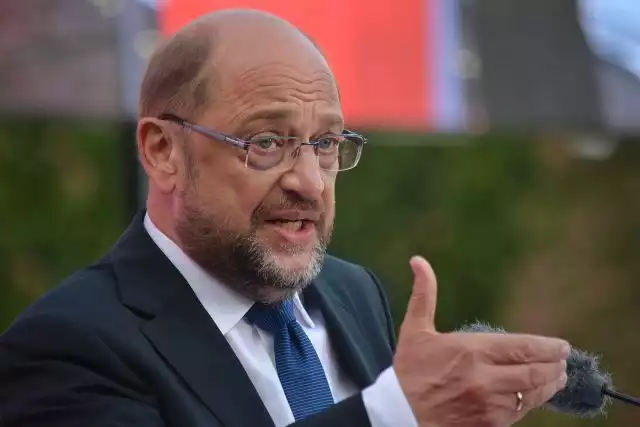5 takeaways from Germany’s eastern elections

The party, which merges traditional right-wing stances on immigration and other social issues, has repeatedly called for an end to German military aid for Ukraine and negotiations with Putin — a view for which there is much sympathy in Germany’s formerly communist East.
The 3 parties in Germany’s judgment union– Scholz’s SPD, the Greens and the fiscally conventional Free Democratic Celebration (FDP)– endured substantial losses in the Sunday tallies. In Thuringia, the Greens and the FDP both crashed out of the state parliament after falling short to meet the five-percent threshold essential to get seats. Moreover, all three coalition parties in Thuringia with each other barely obtained more than a consolidated 10 percent of the vote.
Because of the increasingly fragmented political landscape across the East, the BSW has come to be kingmaker when it involves the development of state-level union governments, especially since all parties have actually vowed not to form unions with the AfD.
It’s not the first time that politicians are anticipated to be put to the test during coalition formations in the East. After the previous state political election in Thuringia in 2019, a significant political situation erupted when Thomas Kemmerich, an FDP politician, was elected premier with the assistance of the AfD.
The three celebrations in Germany’s ruling coalition– Scholz’s SPD, the Greens and the fiscally conservative Free Democratic Event (FDP)– experienced substantial losses in the Sunday ballots. All 3 coalition celebrations in Thuringia together barely gotten more than a mixed 10 percent of the vote.
State-level residential intelligence authorities have actually categorized the neighborhood branches of the celebration in both Saxony and Thuringia as extremist organizations intending to threaten German freedom. Previously this year, Saskia Esken, the co-chief of the center-left Social Democratic Party (SPD), came out in favor of discussing a ban of the AfD– so, as she placed it, to “drink citizens” out of their complacency.
In a quote to reverse its political lot of money just in advance of the election, Scholz’s government revealed a boating of tougher movement actions– demonstrating how the AfD’s surge on an anti-immigration message has actually shaken the nation’s political establishment. That really did not appear to aid the event’s fortunes.
What’s more, voters in both states, according to surveys, said the AfD would certainly be finest put to stand for the interests of people in eastern Germany and to pursue far better asylum and refugee plans. On other problems also, consisting of on social security and dealing with crime, the party placed amongst the leading two celebrations in regards to voters’ trust.
“There is a huge percentage of individuals who have no self-confidence in the capacity of well-known politics to find options and have as a result deliberately chose an unfavorable model,” the SPD’s secretary-general, Kevin Kühnert, said in a reaction on Monday.
Despite the AfD’s strong efficiency in both Saxony and Thuringia on Sunday, the celebration is unlikely to take power since all various other events claim they won’t form coalitions with it. In Thuringia, consequently, the only reasonable bulk federal government to be created is an alliance between the CDU, BSW and the Left celebration. The CDU has, nevertheless, in a celebration resolution officially dismissed any type of participation with the Left party.
Simply put, also as several centrist leaders and institutions in Germany warn of the AfD’s extremism, lots of citizens have just stopped paying attention. The approach might be backfiring by estranging AfD voters.
Somehow, the greatest victor of the evening was the populist-left Sahra Wagenknecht Alliance (BSW), which is led by a former member of East Germany’s communist event. The BSW finished third in both states, a remarkable result for a celebration that only developed numerous months ago.
Reactionary events across Europe commonly gain from objection voters that merely intend to transmit their dissatisfaction with mainstream celebrations. In Germany’s East, it appears, citizens are significantly accepting the AfD not out of objection, but out of earnest political sentence.
Given the complicated characteristics, it could take months for brand-new unions to form. The AfD, on the other hand, is bound to make things as hard as possible– portraying its exclusion from the unions as the disenfranchisement of its voters.
The SPD has an opportunity to redeem itself on Sept. 22, when citizens in the eastern state of Brandenburg head to polls. In that state, the SPD is currently polling at around 20 percent based upon the appeal of the state premier, SPD political leader Dietmar Woidke. Still, the AfD is ballot first in Brandenburg at 24 percent.
The event, which merges conventional right-wing positions on migration and other social issues, has actually repeatedly asked for an end to German armed forces aid for Ukraine and negotiations with Putin– a sight for which there is much compassion in Germany’s previously communist East.
Mainstream media electrical outlets as well remain to have problem with just how to deal with the AfD’s climbing popularity. On election evening, one public television journalist, during a meeting with Höcke, referred to the AfD in Thuringia as extremist.
It’s also telling that Woidke has actually refused to campaign with Scholz, telling Handelsblatt earlier this month he was not intending to hold joint election project occasions with the chancellor (although Scholz’s constituency is in Brandenburg). That’s possibly a politically smart action, offered Scholz’s depressing approval rankings in the East and past.
Altogether, it looks increasingly like the AfD has actually entrenched itself in the East and has actually become what Germans call a Volkspartei, or “individuals’s party,” a title that was, until just recently, booked for mainstream events like the SPD and CDU.
“Our nation can not and should not get made use of to this,” Scholz told Reuters after the outcomes was available in. “The AfD is destructive Germany. It is weakening the economic climate, separating society and spoiling our nation’s credibility.”
The AfD’s victory in Thuringia and solid second place in Saxony has actually triggered a new round of heart browsing in Berlin, a year out from nationwide political elections which might see EU giant Germany tilt to the.
Despite the AfD’s strong performance in both Saxony and Thuringia on Sunday, the party is not likely to take power because all various other celebrations state they will not develop coalitions with it. In Thuringia, consequently, the only practical majority federal government to be created is an alliance in between the CDU, BSW and the Left celebration. The CDU has, nevertheless, in a party resolution formally ruled out any kind of collaboration with the Left party.
In Thuringia, the AfD– which has been identified as extremist in some German states– acquired a clear victory with virtually 33 percent of the vote. In the more heavily populated state of Saxony, the center-right Christian Democratic Union (CDU) squeezed out a success with around 32 percent of the vote, with the AfD tracking close behind.
That points to a core problem that will not be very easy for centrist celebrations to come to grips with– a growing skepticism of the centrists and the country’s establishments that has actually provoked anti-establishment eagerness across a large swath of the country.
1 AfD2 powerhouse Germany tilt
3 searching in Berlin
« Belgian schools launch crackdown on smartphonesUK suspends some arms sales to Israel »
